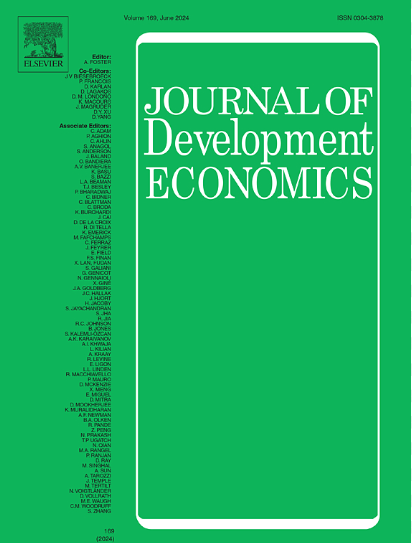Input substitution in electricity generation and industrial production: Evidence from India
IF 4.6
1区 经济学
Q1 ECONOMICS
引用次数: 0
Abstract
Carbon taxation is suggested as an efficient instrument for the clean energy transition. However, high resulting prices for coal and electricity could adversely impact industrial performance and employment by raising production costs. Integration of renewable energy in the electricity grid could stabilise electricity prices. We estimate the elasticity of substitution between labour and electricity among the formal and informal manufacturing sector in India. The results show labour and electricity are strong complements in manufacturing, with elasticities significantly below one, which suggests a carbon tax that raises electricity prices may reduce employment in firms. On the contrary, we find high substitutability between thermal (coal) and renewable energy-based electricity generation, with the elasticity of substitution estimated at 2.0–3.3. Our results suggest that electricity derived from renewable energy sources and supplied to industry at affordable prices could mitigate the adverse effects of a carbon tax in Indian industry.
发电和工业生产中的投入替代:来自印度的证据
碳税被认为是清洁能源转型的有效工具。然而,由此导致的高煤电价格可能会提高生产成本,从而对工业绩效和就业产生不利影响。将可再生能源纳入电网可以稳定电价。我们估计了印度正规和非正规制造业中劳动力和电力之间的替代弹性。结果显示,劳动力和电力在制造业中是强有力的互补,弹性明显低于1,这表明提高电价的碳税可能会减少企业的就业。相反,我们发现热(煤)和可再生能源发电之间具有很高的可替代性,替代弹性估计在2.0-3.3之间。我们的研究结果表明,来自可再生能源的电力以可承受的价格供应给工业可以减轻碳税对印度工业的不利影响。
本文章由计算机程序翻译,如有差异,请以英文原文为准。
求助全文
约1分钟内获得全文
求助全文
来源期刊

Journal of Development Economics
ECONOMICS-
CiteScore
8.30
自引率
4.00%
发文量
126
审稿时长
72 days
期刊介绍:
The Journal of Development Economics publishes papers relating to all aspects of economic development - from immediate policy concerns to structural problems of underdevelopment. The emphasis is on quantitative or analytical work, which is relevant as well as intellectually stimulating.
 求助内容:
求助内容: 应助结果提醒方式:
应助结果提醒方式:


